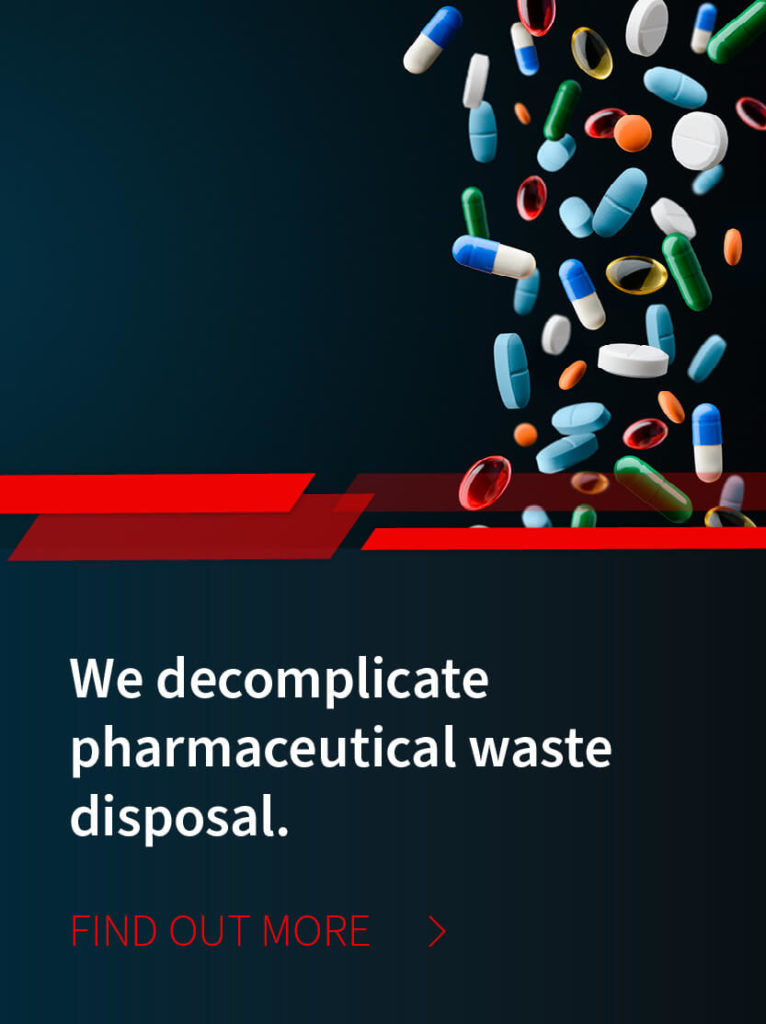
Pharmacy waste management is a complex and dynamic industry. If you run a pharmacy, it is vital you understand exactly how to deal with all the particular waste streams your business produces. If you're uncertain about even one aspect of how to manage your medical waste, it's important to at least seek out a qualified waste management company. Even if you don't secure that company's services, you can gain some valuable insight about what you need to be doing to ensure you're in full legal compliance.
Pharmaceutical Waste Disposal and How Waste Management Companies Can Help
Why Does Pharmacy Waste Management Matter?
First things first—why does this branch of waste management matter? Simply put, independent pharmacies are as liable as any medical facility to abide by federal and state laws, and the potential health and safety consequences of not complying are also the same.
Because this is an industry that's still somewhat in the early stages of growth, it's not uncommon for noncompliance to happen. Whether it's dumping expired medication in the trash or putting those expired medications down the drain, these improper disposal methods can put hazardous materials into the environment, where they can contaminate water, soil, and more.
Pharmaceutical Waste—What to Do with Expired Medicine
Perhaps the most common type of waste found in a pharmacy is expired drug waste. This is most often medication where the shelf life has simply run out.
In certain cases, these medications can be sent to a reverse distributor, who then sends that medication back to the manufacturer for reworking, repackaging, or out-of-country distribution.
You cannot send medication for reverse distribution if the medicine is
- opened,
- used, or
- otherwise compromised.
As a consumer, if you have excess medications, don't forget to ask your local pharmacy if they will take those back. The answer will depend on the specific pharmacy, but many will take those medications for disposal.
Expired Medication Disposal: What Medical Waste Management Companies Can Do
If you decide to work with a medical waste management company to deal with your expired medicine, that company will often give you a pail (most often 2.5 or 5 gallon). In that pail, you can place all expired pharmaceuticals. When that pail is full, the company comes and picks it up.
On top of this convenience, medical waste management services are also beneficial because they can potentially save you from having to switch to a large quantity generator status.
How does that work?
Essentially, medications are U-, D-, or P-listed waste. U and D waste are hazardous, but P category drugs are acutely hazardous waste. If you ever have more than just 2.2 pounds of acutely hazardous waste on-site, you legally are considered a large quantity generator. At that point, you are subject to more taxes and a lot more necessary reporting to the Environmental Protection Agency (EPA).
Simply mixing all the drugs together can quickly put you over that small threshold of 2.2 pounds, so a reputable waste management company will give a pharmacy two pharmaceutical waste containers and the proper placards and labeling (a yellow hazardous waste label). They will then guide the pharmacy through what constitutes P-listed waste (including fairly commons drugs, such as Warfarin) to ensure the drugs get put in the proper pail while the pharmacy manages to stay under that 2.2-pound limit.
Remember, if reverse distribution is not an option, you should get a qualified hazardous waste management company to walk you through how to dispose of expired medication.
Regulated Medical Waste and Pharmacies
It's becoming increasingly common for pharmacies to offer certain clinical services, such as flu shots. If a pharmacy does provide this kind of service, it's imperative the waste generated from that is handled properly.
That means all sharps must go in a sharp container, and then that sharps bin must go in a red bag. Anything contaminated, or potentially contaminated, by blood is considered red bag waste, so that includes
- needles or syringes,
- gauze or bandages, and
- gloves worn when administering shots.
One other important note for pharmacies is that expired medicine can never go in the red bag. It would lead to improper destruction and the potential for serious environmental contamination.
If your pharmacy doesn't offer these services yet, but you think you might in the future, it's a good idea to work with a full-service waste management company. That way, as you grow and expand, your waste company can simply scale with you.
OSHA Compliance and Pharmacies
If you are offering medical services, you need to ensure all relevant employees go through OSHA compliance training. In particular, anyone in contact with patients needs OSHA bloodborne pathogen training, and anyone dealing with the confidential paperwork of patients needs HIPAA OSHA training.
If you're working with a full-service company, you can also enlist them to do your necessary document destruction to ensure sensitive patient information is not compromised.
Retail Waste and Pharmacies
Outside of medical waste, there is also just retail waste generated in the actual store, some of which can be oxidizers, corrosive substances, and more. Waste management companies can help segregate that waste and then take the necessary steps to see it properly disposed of.
For more information about the kinds of waste a pharmacy could produce and how to legally, safely, and properly dispose of that, please feel free to contact a representative of MCF Environmental Services, a waste management Atlanta company.








